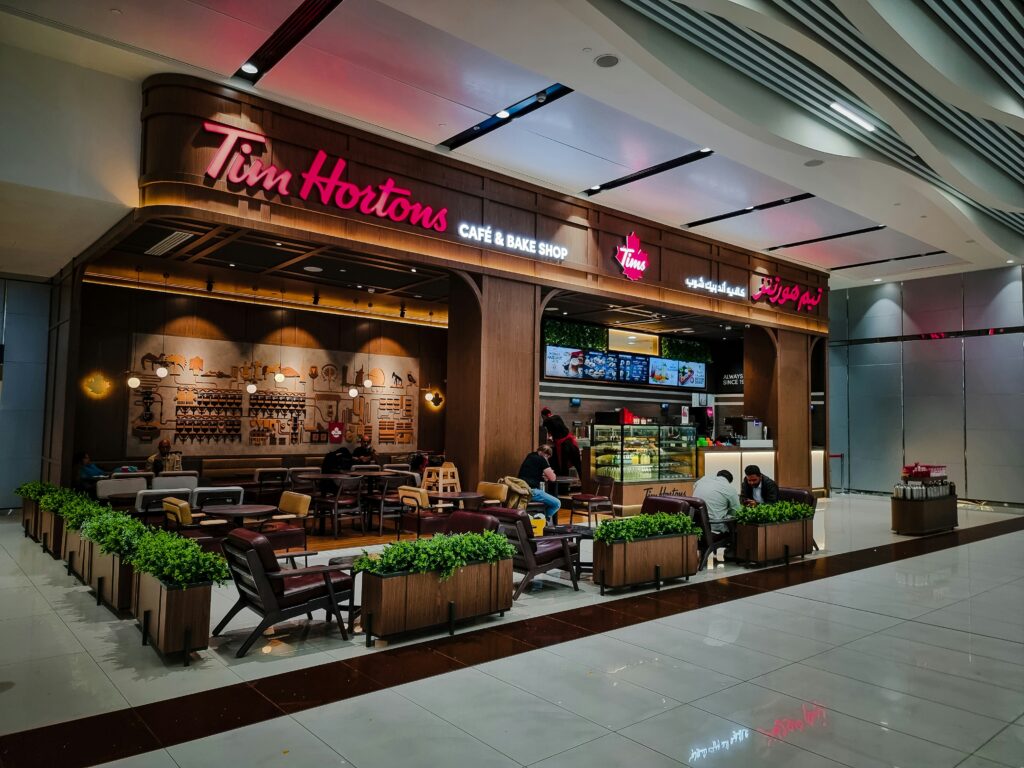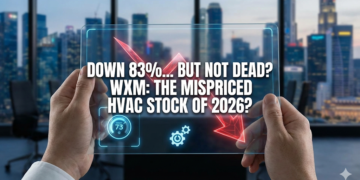Restaurant Brands International Inc. (NYSE:QSR) is one of the largest and most recognized quick-service restaurant companies in the world, with a powerful portfolio of globally iconic brands that include Tim Hortons, Burger King, Popeyes Louisiana Kitchen, and Firehouse Subs. Headquartered in Toronto, Canada, the company was formed in 2014 following the merger of Burger King and Tim Hortons, a landmark transaction that created a new global leader in the fast-food industry. Since then, Restaurant Brands International has grown into a multinational powerhouse, with thousands of restaurants spanning more than 100 countries, serving millions of customers every day.
The company operates primarily under a franchised business model, which allows it to generate high-margin royalty streams from its global network of franchise partners. This asset-light approach has provided Restaurant Brands International with the flexibility to expand aggressively while minimizing capital intensity, as franchisees bear much of the cost and responsibility for daily operations. By leveraging the strength of its brands and supporting franchise operators with marketing, technology, and supply chain resources, the company has built a durable platform designed for long-term growth.
Each of Restaurant Brands International’s brands holds a distinct position in the quick-service landscape. Tim Hortons has become a cultural staple in Canada, known for its coffee, baked goods, and strong community presence, while also expanding internationally in recent years. Burger King, with its iconic Whopper, is the second-largest fast-food hamburger chain globally, boasting decades of brand recognition and a presence in nearly every major market. Popeyes Louisiana Kitchen brings a differentiated offering through its unique fried chicken recipes and southern-inspired menu, fueling strong international growth. Firehouse Subs, acquired in 2021, adds another layer of diversification, tapping into the growing demand for specialty sandwich concepts with a strong community and charitable identity.
In addition to its brand strength, Restaurant Brands International has consistently emphasized innovation, technology, and modernization to stay competitive in an evolving consumer landscape. The company has invested heavily in digital platforms, delivery partnerships, loyalty programs, and restaurant remodel initiatives, all aimed at enhancing the customer experience and driving comparable sales growth. By combining its global scale with localized strategies, the company seeks to adapt to diverse market dynamics while maintaining operational consistency across its restaurant network.
Despite these strengths, the company operates in a highly competitive environment where consumer preferences, cost pressures, and macroeconomic conditions play a significant role in shaping financial performance. Nonetheless, Restaurant Brands International remains positioned as a dominant player in the global quick-service segment, leveraging the power of its four major brands and its franchise-first model to pursue sustained growth and long-term value creation for its shareholders.
Weakening Stock Performance Raises Red Flags
On September 5, 2025, Restaurant Brands International closed at $63.10 per share, giving the company a market capitalization of $28.7 billion. Over the past month, its shares have declined 3.13%, and over the past year, the stock has shed 6.95% of its value. While the broader S&P 500 has managed steady gains, QSR has underperformed, signaling that investor confidence in the brand’s long-term growth trajectory may be weakening.
Hedge fund sentiment has also shifted. At the end of Q2 2025, only 29 hedge fund portfolios held positions in QSR, compared to 32 in the previous quarter. Such declining institutional interest suggests that large investors are reallocating capital toward sectors they believe carry better upside potential and lower downside risk, particularly in artificial intelligence and technology.

CHECK THIS OUT: Saudi Arabia Wants CEL-SCI (CVM)’s Multikine Now! and Aligos Therapeutics (ALGS) Doubles Cash to $122.9M.
Margin Pressure From Inflation and Input Costs
One of the central risks weighing on Restaurant Brands International is its exposure to rising input costs. Beef, chicken, and dairy prices remain volatile, while labor costs across North America and Europe continue to climb. Despite being able to pass some of these costs on to franchisees, the company risks losing traffic if menu prices rise too aggressively.
Operating income has been pressured in recent quarters, as QSR’s net income in Q2 2025 fell to $189 million from $280 million the year prior. This decline reflects both higher operating expenses and weaker unit economics in certain markets. For a business model that relies heavily on franchisee health and profitability, these pressures could ripple across the system, leading to lower royalty revenues and slowed store expansion.
Uneven Brand and Geographic Performance
While Burger King and Tim Hortons remain global icons, not all of QSR’s brands are delivering consistently. For instance, Burger King’s performance in China has lagged expectations, reflecting both consumer preference shifts and operational inefficiencies. At the same time, mature markets such as the United States and Canada are reaching saturation, making it harder to deliver high-single-digit unit growth without cannibalizing sales.
Tim Hortons, though dominant in Canada, has struggled in international markets to replicate its strong brand identity. Popeyes and Firehouse Subs provide diversification, but their global footprints remain small compared to Burger King, limiting their ability to drive outsized growth in the near term.
Franchisee Strain and Operational Risks
Restaurant Brands International’s capital-light model depends on franchisee partners to shoulder store-level costs. However, many franchisees are grappling with higher rents, wages, and food costs. This creates a risk that operators may delay remodels, cut back on reinvestments, or push back against royalty structures.
The company’s acquisition of Carrols Restaurant Group was intended to consolidate and streamline operations, but integration costs and execution risks may weigh on margins. If QSR fails to deliver expected efficiencies from such deals, investors could see reduced returns on capital.
Debt and Capital Allocation Concerns
RBI’s aggressive growth strategy has been funded in part by debt. While leverage is common in franchised restaurant models, the company’s balance sheet remains vulnerable in a high interest rate environment. With rising costs of borrowing, QSR faces the possibility of squeezed free cash flow as interest expenses climb.
Moreover, the company’s heavy investments in technology, delivery partnerships, and remodel programs require consistent returns to justify capital allocation. Should consumer demand soften or remodel initiatives underdeliver, QSR risks burning cash without meaningful earnings uplift.
Consumer Headwinds and Competitive Pressure
As a consumer discretionary stock, QSR is highly exposed to fluctuations in household spending. Inflation has eroded disposable incomes across North America and Europe, pushing many consumers toward value-oriented competitors such as McDonald’s, Wendy’s, and emerging fast-casual brands.
To compete, QSR has leaned into promotions and value menus, but this strategy erodes margins. On the other hand, if it maintains premium pricing, traffic could suffer. This delicate balancing act underscores the difficulty of sustaining both growth and profitability in a challenging macroeconomic environment.
Regulatory and ESG Challenges
The company also faces growing scrutiny from regulators and ESG-focused investors. Rising minimum wage laws, stricter food labeling requirements, and environmental compliance costs represent ongoing risks. QSR has been rated as having “medium exposure” to ESG risks, with supply chain controversies and sustainability challenges creating reputational overhangs that may impact investor sentiment.
Why the Downside Risk May Outweigh the Upside
Although prominent investors like Pershing Square Holdings have praised QSR’s franchised business model as a “high-quality, growing annuity,” the reality is that execution risk, cost inflation, and shifting consumer preferences weigh heavily on its prospects. Jim Cramer himself recently remarked that “it’s not the kind of stock I’d buy right now,” highlighting that even bullish commentators are taking a step back.
With net income already trending lower, hedge funds trimming exposure, and persistent cost pressures across the system, Restaurant Brands International may struggle to deliver the consistent double-digit returns that growth investors seek. While AI and technology stocks present alternative growth opportunities with higher near-term momentum, QSR’s reliance on mature brands and a franchisee-driven structure leaves it vulnerable to cyclical downturns and structural stagnation.
Conclusion: A Stock That May Continue to Lag
Restaurant Brands International has undeniable brand equity, but investors must weigh its downside risks carefully. Declining hedge fund interest, operational inefficiencies in key markets, cost inflation, and debt leverage all suggest that QSR could remain under pressure in the coming quarters. Unless the company can prove that its remodels, technology investments, and expansion plans translate into stronger earnings growth, the stock may continue to underperform the broader market.
For investors seeking reliable upside potential, other sectors—particularly technology and artificial intelligence—may offer stronger growth prospects with less downside risk compared to Restaurant Brands International.
READ ALSO: How Globalstar (GSAT)’s Strategic Apple Partnership is Changing the Satellite Game and Intel (INTC)’s Epic Comeback: Why Wall Street May Be Dead Wrong About This “Dying” Chip Giant.






